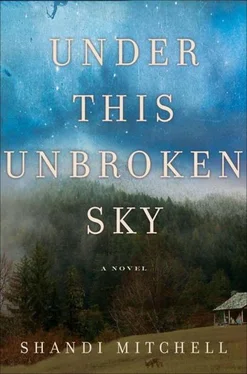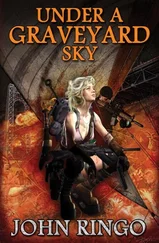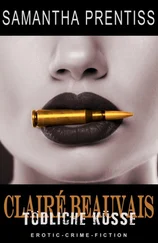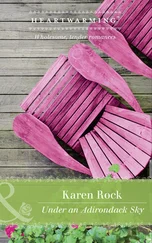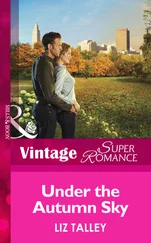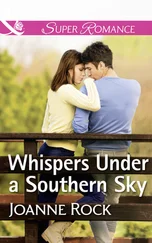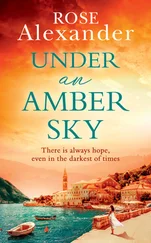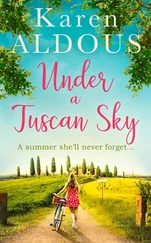“Teodor?” Maria’s voice wavers. She sees him as a shadow across the room.
“I have to check the horse.” He clutches his coat in front of him. “It’s bad out there.” He slips out the door.
Maria jumps from the bed and runs to the window. She sees him heading toward the barn, not putting on his jacket. Then the snow devours him and he is lost from her view.
TEODOR UNWRAPS THE .22 FROM HIS JACKET AND PUTS on his coat. There are two bullets in his pocket. He loads one.
IF YOU ASK THEM WHAT HAPPENED THAT NIGHT, MARIA will say her husband said he was going to the barn to check the horse. She waited for him to come back and when he didn’t, she went looking for him. The storm was at its peak, and she could barely open the barn door. When she saw he wasn’t there, she ran back to the house and woke her eldest son. That’s when she realized the .22 wasn’t hanging over the door and that he must have taken it earlier and hidden it in the barn. Ask her if she knew where he was going and what he was going to do, and she will refuse to answer, saying only that he was a good man.
Myron will say that he was woken by his frantic mother, asking, “Where’s the gun?” He told her it was by the door, leaning against the wall. When she said it wasn’t there and they had to find his father, he knew. He knew where his father was going and what he was going to do. If pressed to answer how he knew, he will reluctantly answer, “My aunt turned him in.”
Myron will say that he tried to stop him. He ran as hard and fast as he could. But the wind was screaming and the snow was blinding and he couldn’t find the stone wall. Everything was black and white. The snow kept swallowing him, pulling him down. He hollered, Tato! Tato! Tato! But his voice was drowned by the shrieking gale. And then he heard the shot. One shot. He couldn’t tell from what direction. But he knew.
The girls didn’t wake until first light. The fire had gone out and they were shivering in their bed. The house was quiet. They couldn’t hear their tato stirring his coffee or smell his morning cigarette. They didn’t hear their mama preparing breakfast or smell bread baking in the stove. They found her sitting at the window, staring out at the sorrowing prairies. When they asked her, “What’s wrong?” she told them to get on their knees and pray. Pray for their father. Pray for his soul.
Katya will say that she tried to pray, but the fire was out. She looked inside the stove and there were only ashes. Cold and gray. She will say the fire took her tato. It was only pretending not to be hungry.
Ivan didn’t see a gun; he remembered going to pee. The wind tried to take him away. His tato held his hand and told him to go back to bed. He didn’t say anything else.
Lesya will say she was asleep and there was a crack—like thunder. The window shattered and wind and snow shot into the house. Her mother, who was standing at the window, exhaled, looked down at her chest, and sank to the floor.
Petro will say he knew his uncle would come and kill them. He said that he’d be back to kill them all. No one will understand him when he says the crows took the quarter and that he can’t take it back. He didn’t mean to see the secret in the wall, but Ivan stole his hat. He didn’t see Teodor, but he heard him crash through the window, a wild dog that tore out his mother’s heart. He will ask over and over when his tato is coming to get him.
If Anna could tell you, she would say that she couldn’t sleep because of the wailing storm. It sounded like a baby crying. She had the lamp burning because she didn’t want to be alone in the dark. She doesn’t know what made her look outside, maybe the snow hitting the window, like fingers tapping. She rubbed the ice from the pane and through the wind and snow’s frenzied dance she thought she saw her brother.
He was standing in the storm, looking at her, and it scared her. She thought he was a ghost, a forerunner, and that something terrible had happened. But then she noticed the snow accumulating on his shoulders, on his hair, and drifting over his boots, and she knew that he was real. She lifted her hand to tell him to come in. Come in out of the storm.
The window cracked and the wind whistled through a perfect round hole in the glass. And she felt warmth spilling over her heart. When she looked down, blood was blossoming on her chest and her lungs were gurgling. And she had to sit down, because it was snowing inside and the wind was carrying her away. And the coyotes were howling.
Teodor would have said that he saw his sister come to the window. She looked at him and smiled. Smiled as if none of it mattered. He pulled the trigger. He didn’t hear it fire. He didn’t hear the children screaming. He saw red on her white shirt. He saw the question in her eyes. Like she didn’t know why.
He saw her shudder and crumple.
WHEN TEODOR STOPS RUNNING, HE IS NO LONGER A MAN. He has outrun himself. His legs quiver, muscles taut. His chest heaves. He pants wildly. He has followed the tracks of the others like him—into the woods, toward the water, under branches, into the deep smell of spruce to the place of quiet. Here, the snow is packed down from their sleeping bodies. Smooth hollows. The storm roars around him, but he no longer hears the wind.
He takes off his leather jacket, his numb hands paw at the zipper, and he sheds the unfamiliar skin stinking of sweat and fear. He stares at the remains of the man and can’t imagine it was ever him. He neatly folds the skin, crossing its arms over its chest. He places the man in the crook of two twisted trees. He removes his boots, clawing at the strings caked with snow and ice; he slips off his heavy feet. The soles are rough, the tops creased and scuffed. He tucks the shoelaces inside and places the feet side by side on top of the man.
He kneels down. He puts the gun under his chin and looks up.
He has never seen such
snow.
THE MORNING SMELLS MUD-GREEN. BARN SWALLOWS dart in and out of the rafters. The horse stands patiently hitched to the cart, flicking away flies with its tail. The stove is lashed down. Bed frames dismantled. Blanket boxes, crammed with clothes and linen, are piled atop the inverted table. Chairs and benches are stacked. Two rolled mattresses are slung over the sides. A barrel holds a jumble of pots and dishes and the last few jars of borshch and sauerkraut. Tools, tack, rabbit pelts, and a deer hide are stuffed along the sideboards. The .22 is tucked under the bench.
Hidden deep within the everyday are their secret stashes. Nestled in a pail crammed with mittens and scarves is Ivan’s WINCHESTER box containing a rabbit skull, a penny, a broken pocket watch, a wasp’s nest, a rock shaped like an egg, and his father’s pocket knife.
In the bottom of Katya’s blanket box is a pressed wild rose, a carved wren whittled from birch, one lemon candy, and her tato’s tobacco pouch, which holds a partially smoked, hand-rolled cigarette and a burned wooden match.
Between the pages of Sofia’s English primer are two front-page newspaper clippings. Woman Is Slain. Famed Dog to Assist Mounties in Search for Farmer as Sister Killed. A half-page photo of a grinning German shepherd—“Dale of Cawsalta”—accompanies the story . The second reads: Suicide Following Murder—Dual Tragedy in Land Ownership Dispute . It is offset by a grainy photograph of a window and a mustached officer pointing to a single bullet hole.
In a coffee can, Dania has packed recipes jotted on brown paper wrapping—one in her father’s hand, for Wheat Wine —a thimble carved from poplar, a half a skein of red wool, one dollar and seven cents she earned laundering hotel bedsheets, and a pair of her father’s socks with the heels worn out. Wrapped in his handkerchief is a small handful of rich black earth.
Читать дальше
